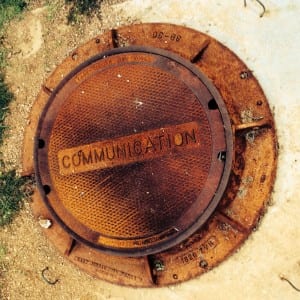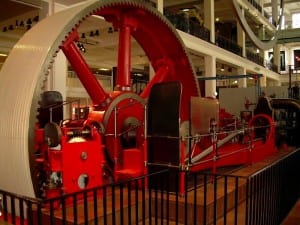Overcoming misconceptions about the fast stream and civil service – a UCL students insight
By UCL Careers, on 19 June 2017

UCL masters student Georgina Evison
Throughout my undergraduate degree the Civil Service Fast Stream was no more than a blip in my peripheral vision. I vaguely heard friends mention that they were applying – a couple even said it was their dream post-uni job – but it never particularly piqued my interest and so I never enquired exactly what it was.
This was out of the idea that I didn’t want to go into politics – an idea that I now understand represents a distorted view of what the Civil Service actually is.
During one of the first weeks of my Masters degree, when I saw the Civil Service Fast Stream representatives on the UCL campus, it would be dishonest of me to pretend I walked over to them for any other reason than they were giving out free coffees.
About to go to work and feeling a bit sleepy, I thought I’d have a quick chat and be on my way; the thought that I might actually end up quite interested in something new didn’t cross my mind. The two women I spoke to explained about the various schemes and I began to understand the breadth of opportunities available within the Civil Service Fast Stream.
Before this, I had for some reason imagined that the Civil Service Fast Stream would essentially involve lots of admin and one single path for graduates. After a few minutes and lots of questions, I filled out a survey asking how likely I had been to apply to the Civil Service Fast Stream prior to speaking to the representatives (not at all likely) and now (somewhat likely!) and continued on my way to work – coffee in hand.
I admittedly then forget about our conversation for a couple of days, at which point I discovered I had missed the deadline to complete the initial stage of the application.
Mildly disappointed, but with the thought of applying next year in mind, I didn’t give the Civil Service a great deal of thought until I received an email mid-January. I had completely forgotten that in filling out the survey I would be entered into a competition to shadow a senior civil servant for a day – the detail hardly registered in my mind given my minute chances of winning.
As a Human Rights Law Masters student, the opportunity to shadow a civil servant in DFID (Development for International Development) was basically a dream prize, and when I looked up the bio of Ellen Wratten – who I would be shadowing – I looked on in awe at the list of accomplishments.
To be honest, I was a bit surprised that someone who had done so many cool things worked for the Civil Service. The day itself was an eye-opening experience to the realities of working not only in DFID, but for the Civil Service generally.
I arrived at 22 Whitehall and was given a quick tour before attending an event to celebrate and share the accomplishments of four different global development think tanks. The event was opened by MP James Wharton who gave a short speech about the various global development challenges that DFID is engaging with in order to try and positively impact on the lives of some of the poorest people in the world, in line with DFID’s goal to “leave no one behind”.
Everyone that I was introduced to seemed to do something different, and they all had a few encouraging words for me when I explained about my own career aspirations. Having the opportunity to talk to Ellen afterwards made me see that despite the image of government that we see in the media – politicians standing up and giving speeches – it’s really the hundreds of civil servants working hard behind the scenes that are responsible for many changes.
I also realised that there isn’t a “type” of person that works in the Civil Service, something which a few of the people I spoke to alluded to as becoming increasingly important. The range of educational and employment backgrounds from which civil servants have come from is remarkable and definitely changed my perception of both the type of work that civil servants do, and the type of people who apply.
I’m grateful that I had this opportunity because otherwise the Civil Service Fast Stream would have remained a bit of a mystery to me, when in fact it’s something that I will enthusiastically apply to now. I would encourage anyone who was like me to just have a look and learn a bit more about the Civil Service Fast Stream because it’s easy to discount it as “not for you” when in fact there’s probably an opportunity to interest everyone.
__
Profile – Georgina Evison
Georgina is studying a Masters in Law, specialising in Human Rights law at UCL. From 2012-15 she studied law at the University of Bristol. In the year between her undergraduate and postgraduate degrees she did an internship with an NGO in Nepal for 4 months and then moved to Paris to work as an au pair and English tutor and improve her French. Georgina grew up in Sheffield but moved to Toronto when she was 11, and moved back to the UK for university. She is interested in human rights law issues – particularly relating to privacy and security law, freedom of religion, and children’s rights. Outside of academics, she likes reading, languages, running, and cooking. Upon finishing her Masters she’d will be working for the Independent Inquiry into Child Sex Abuse as a paralegal.
 Close
Close



